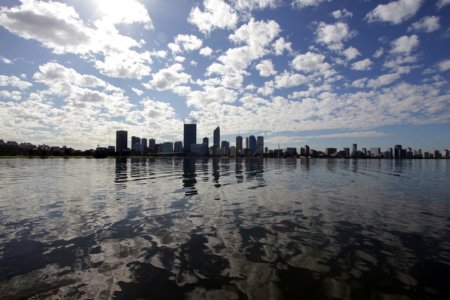
We all know the joys of living in a new country. Think of the last time you were on a trip, either solo or with your friends or family — was it relaxing, exciting, or thrilling?
Choosing a degree that leads you to the best jobs that involve travelling will let you experience these exhilarating emotions regularly. And get paid too.
When Indian-born Aahuti Sejpal considered pursuing her master’s degree in management with a focus on digital business at IE Business School, the chance to live in Spain was a big factor as she longed for an experience in a non-English speaking country.
“While applying for my master’s, I realised that Spain has some of the best business schools in the world, especially for the programme I wanted to study,” she told Study International.
“This was a no-brainer for me! I knew I wanted to study in a country like Spain that was culturally rich and where English was not widely spoken. This was an opportunity for me to learn a new foreign language too.”
The best jobs that involve travelling let you continue doing all of this — and more — well after graduation.
But before that, what are the “best” jobs that involve travelling?

The late Anthony Bourdain was known to hold one of the best jobs that involve travelling, visiting more than 80 countries in his lifetime. Source: AFP
What makes a job one of the best jobs that involve travelling?
While it’s hard to narrow the best jobs that involve travelling, there are a few indicators we’ve used for our list:
- As the phrase suggests, these jobs can take you to many countries across the globe. The more, the better.
- Good career prospects and salary progression indicate that these jobs can help you get the best value for your buck when enrolling in a particular degree, especially when they require extra certification.
- What sets these jobs apart from the normal ones is the fact that you get to learn a particular set of skills or experience something special when working these jobs.
Take Peter Mckinnon, for example.
As a world-renowned filmmaker and YouTuber, the Toronto-based photographer’s experiences in travel, photography, and filmmaking give him leverage over other artists without the same experience.
He had a unique way of doing this, especially when dealing with lighting and audio quality.
Most recently, Mckinnon travelled to Iceland and captured its picturesque natural landscape — an area of photography he is known for.
Whether the best jobs that involve travelling take you near or far, for a long or short period, the global knowledge and skills you gain will make you high in demand.
“More than ever, employers value and expect graduates who can demonstrate interdisciplinarity from day one, working effectively in a diverse team of specialists as employees increasingly interface with growing amounts of artificial intelligence and automation within the workplace,” Laura Brammar, Deputy Head of the University of London Careers Service and Victoria Wade, Director of the University of London Career Service, wrote in an article on the university’s website.
With so many benefits, there is intense competition to land the best jobs that involve travelling.
The most effective way to stand out from the rest? A relevant university degree that makes you an expert in the field.
5 degrees that prepare you for the best jobs that involve travelling
1. Pilot
A degree in aviation offers an exciting path for those passionate about flying, engineering and travel.
Career prospects for pilots are promising, with a strong demand for airline and cargo pilots worldwide.
Over the next two decades, the industry will require around 649,000 pilots, translating to approximately 32,000 pilots annually.
As of 2023, your first year at a regional airline can yield an annual income ranging from US$50,000 to US$100,000, considering the complete compensation package, including per-flight pay and other benefits.
With experience, you can advance to higher-paying positions like captain or chief pilot.
However, note that post-COVID-19, airline pilots are reporting overwork and frustration dealing with disruptions in commercial flying.
How does this job involve travelling?
Pilots embark on thrilling journeys as they operate aircraft to many destinations worldwide. Imagine yourself at the controls of a large commercial airliner, taxiing down the runway as the sun sets over the iconic skyline of New York City.
Your job takes you to bustling airports like JFK, where you’ll prepare for an intercontinental flight to cities like London, Paris, or Tokyo. Whether you’re landing in a bustling metropolis or a remote island paradise, being a pilot means constantly exploring new horizons.
What are the opportunities you’ll gain through travelling as a pilot?
Traveling as a pilot is not just about work; it’s a passport to a world of unique experiences. You’ll have the chance to immerse yourself in different cultures, taste exotic cuisines, and explore historical sites.
Picture yourself strolling through the ancient streets of Rome during a layover or savouring sushi in Tokyo between flights.
As you crisscross the globe, you’ll make friends from diverse backgrounds, fostering international connections that can last a lifetime.
The world will be your playground, and the opportunities for personal growth, cultural enrichment, and unforgettable memories will be boundless.
Where to learn
To become a pilot, you can pursue a degree in aviation or a related field from an FAA-approved school, a commercial pilot’s licence with instrument and multi-engine ratings, flight hours, and an airline transport pilot certification.
Many universities and flight schools around the world offer aviation programmes. Examples include Embry-Riddle Aeronautical University (USA) and Oxford Aviation Academy (UK).

As a journalist, you can travel the globe and cover ground-breaking events or interview high-profile figures. Source: AFP
2. Journalism
Journalism can be exciting for those interested in writing, news reporting and travel.
This field also opens the doors to travel journalism, allowing you to explore renowned destinations and cover the global travel industry.
As a journalist, you may travel to scenes of important events to cover the story or interview witnesses — something Ruhi Kandhari, an Indian journalist and graduate from the London School of Economics and Political Science (LSE), can attest to.
“There’s a lot happening in rural areas in India that aren’t shared by the media,” she says. “For instance, a public healthcare system on the verge of collapse due to a lack of government support.”
As of 2023, you can expect your average base salary of US$49,221 per year, with the highest annual income being US$84,448.
Like any other job, there are downsides. Journalists often have to face death, destruction and tragedy — which can lead to emotional burnout in the long run.
How does this job involve travelling?
Journalists embark on exciting journeys, covering stories from bustling urban centres to remote and exotic locations.
Imagine reporting from the frontlines of a breaking news event in a major city or investigating a unique cultural story in a distant village. Journalists travel to gather information, conduct interviews, and witness events firsthand, all while capturing the essence of different places.
For example, Lindsay Tigar, a renowned travel and lifestyle journalist with over a decade of experience shares her adventures and industry insights, offering detailed destination coverage and valuable tips.
She has contributed to top publications like Leisure, Vogue, USA Today, and Trave+, and is known for her unique writing style that vividly captures imagery. You could be the next in line.
What are the opportunities you’ll gain through travelling as a journalist?
Traveling as a journalist offers the chance to explore many cultures, meet interesting people, and tell compelling stories. It can lead to experiences like covering international events, reporting on global issues, or delving into unique subcultures.
This career path opens doors to personal growth, a deep understanding of the world, and the opportunity to make a meaningful impact through what’s known as the world’s oldest art: storytelling.
Where to learn
All journalists need a solid foundation of writing, which helps them report as truthfully as possible. They also need an eye and ear to spot the stories that benefit the public — an art and a science in itself.
You can study journalism at many universities and colleges worldwide, including Columbia University (USA), the University of Oxford (UK), and the University of Southern Queensland (Australia).

Uncover the mysteries of our world as you travel to countries as an archaeologist. Source: AFP
3. Anthropology
Anthropology is the study of human cultures, both historical and current.
A degree in anthropology opens up exciting prospects for travelling while immersing oneself in studying and documenting various cultures across the globe.
As an anthropologist, you can embark on journeys to attend international conferences, share your expertise at public events, and collaborate with other scientists to form an understanding of diverse cultures.
In 2021, anthropologists earned a median salary of US$61,910, with the highest 25% making $78,930 and the lowest 25% earning US$48,420.
How does this job involve travelling?
Anthropologists embark on fascinating journeys to study and understand diverse cultures and societies. They seek to uncover the complexities of human culture, behaviour, and history.
To do this, they conduct fieldwork in various locations, living among and observing communities.
They could be living with indigenous tribes in the Amazon rainforest, excavating ancient ruins in Egypt, or studying urban communities in bustling cities.
What are the opportunities you’ll gain through travelling as an anthropologist?
Travelling as an anthropologist offers a unique opportunity to immerse in different cultures, languages, and traditions. It can lead to discoveries about the human experience across time and place.
For example, Ralph Linton, a famous cultural anthropologist, began his career as an archaeologist and conducted extensive research in ethnography of various regions, including Madagascar.
Later, he unravelled the distinction between status and role, which is one of the major landmarks in anthropology.
Where to learn
To become an anthropologist, you need a bachelor’s degree in science, arts, social science, or international studies with a major in anthropology (preferably with Honours), followed by a postgraduate qualification in anthropology.
Some well-regarded institutions for archaeology studies include the University of Cambridge (UK), University of Auckland (New Zealand) and the University of Sydney (Australia).

You get to travel to interesting events and capture unique images in various countries as a photographer. Source: AFP
4. Photography
A photography degree can lead to a career as a photographer or photojournalist.
As a photojournalist, you’ll collaborate with journalists to capture images for breaking news stories.
You can also explore opportunities as a fashion photographer, taking you to renowned fashion hubs worldwide for photo shoots and promotional events.
Successful photographers can build a solid client base and increase their earnings. The average salary for a photographer is US$46,085 per year in the US.
How does this job involve travelling?
Photographers have the privilege of travelling to captivating destinations to capture the beauty and diversity of the world through their lenses.
Imagine photographing a serene sunrise over the Grand Canyon, capturing the vibrant colours of a bustling street market in Marrakech, or documenting wildlife in the African savannah.
On the other hand, a fashion photographer can be in Paris shooting Supreme’s latest ads on Monday and in Jakarta the next day to capture a new brand of sustainable bags.
In essence, photographers travel to seek out unique scenes and moments, constantly exploring new landscapes and cultures.
What are the opportunities you’ll gain through travelling as a photographer?
Travelling as a photographer offers the chance to create stunning visual narratives and tell compelling stories through their images, whether they’re documenting travel adventures, cultural traditions, or the natural world.
Travel photographers can expand their portfolio, gain recognition, and secure more clients by showcasing their travel experiences. This can lead to collaborations with travel companies, tourism boards, and magazines.
You can also conduct photography workshops or tours in exotic locations, sharing your expertise with fellow photography enthusiasts.
Where to learn
While there are no specific degrees in “travel photography,” you can study photography at many art schools, universities, and photography institutes.
Photographers may pursue a Bachelor of Fine Arts (BFA) with a concentration in photography, and some continue their education by earning a Master of Fine Arts (MFA).
Notable institutions include Arts University Plymouth (UK), the Royal College of Art (UK), and the Brooks Institute (USA).

As climate change is a global issue, environmental advocates travel to different countries and work with various stakeholders. Source: AFP
5. Environmental health
An environmental health degree is ideal for those passionate about science, planetary well-being, and ecosystems.
This career offers opportunities for research in diverse environments, visits to renewable energy facilities, and participation in national and international conferences alongside fellow professionals.
Environmental health professionals are crucial in safeguarding public health by addressing environmental factors affecting well-being.
The average salary for an environmental health officer is US$84,588 per year in the US.
How does this job involve travelling?
Environmental health professionals travel globally to safeguard public well-being. Whether in the Amazon rainforest, industrial cities, coastal regions, rural areas, or urban centres, they ensure environmental safety and human health.
For example, Hien Nguyen, an environmental health officer with the Vessel Sanitation Programme, frequently travels to ports for sanitation inspections.
She spends about 60% of her time on the road, visiting ports nationwide, including Puerto Rico and St. Thomas, often for just a day or two.
She also travels to European shipyards for pre-launch inspections, describing travel as both the best and worst part of her job.
What are the opportunities you’ll gain through travelling as an Environmental Health professional?
Travelling as an environmental health expert can provide unique opportunities to gain diverse experience and expertise.
Professionals who are willing to travel can work on a wider range of projects and contribute to addressing environmental health challenges in different regions.
This exposure can lead to a deeper understanding of environmental issues and innovative solutions.
Where to learn
Environmental health professionals need at least a bachelor’s degree in a natural science or science-related field for most entry-level jobs.
Here are a few universities known for their strong programmes in Environmental Health: Johns Hopkins University, University of California, Berkeley, University of Michigan and others.










